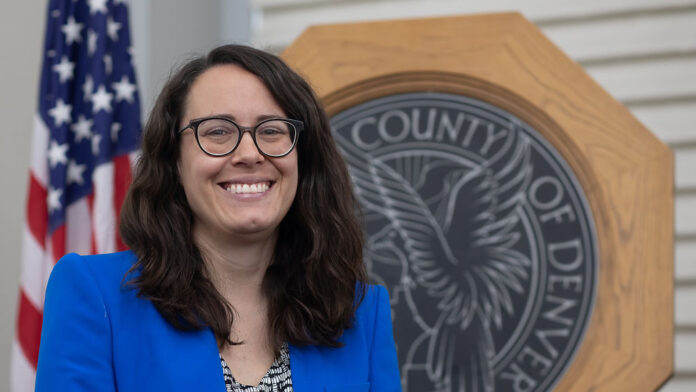
The Denver City Council passed an ordinance on July 15 to ask the voters of the city and county if thousands of public workers employed by the municipality can collectively bargain and strike in case of an impasse.
Ordinance 24-716 passed its final reading in a block vote, with all council members voting in favor. The workers who will be bargaining-eligible include non-supervisory and non-confidential employees of the city’s career service and employees of the City Council, Library Commission, Civil Service Commission, Board of Adjustment and the Board of Water Commissions. Excluded are deputy sheriffs, deputy sheriff majors, deputy sheriff division chiefs and career service employees of the Denver Health and Hospital Authority.
The pool of employees with a right to strike in the case of a breakdown in negotiations will be smaller, as the right to strike is only granted by the ordinance if it won’t “substantially threaten the public health, welfare, or safety.”
The arbiter of whether this definition is met will be the City Council, the Clerk and Recorder, the Auditor’s Office or the Library Commission for their employees and the mayor for all other bargaining-eligible employees.
Notably, the Denver District Attorney’s Office sent a letter to the City Council that the office wouldn’t be bound to a union contract signed by the city with its workers. DA Beth McCann, in the letter to the council, cited the Colorado Court of Appeals Case Anderson v. Adams County, which held that DAs in Colorado are state officers independent of county governments.
“It is my understanding that the provisions of Ordinance 24-716, which allow collective bargaining and associated rights with union contracts, such as the right to strike, for Denver City and County employees will not apply to the Denver District Attorney’s office and its Career Service employees,” wrote McCann in the letter.
While McCann outlined her exemption in a letter, several city employees testified in support of the ordinance at the bill’s hearing on July 8.
Peter Simon, who identified himself as an 11-year employee of the Denver Public Library and member of Denver Public Library Workers United, told the council that Denver couldn’t function without the work of the thousands of municipal workers employed by the city and its agencies.
“We are asking [the Council] to take this important step and put collective bargaining on the November ballot,” said Simon. “Should it be approved by voters, it will be a win for the city, because dedicated, well-compensated workers can stay in their jobs and master the skills necessary to build a stronger Denver.”
Wendy Howell, a union organizer and state director of the Colorado Working Families Party, told the council that WFP stood in strong support of the measure and that the organization would work hard to get it passed.
“As we see greedflation out of control, as we see the cost of living out of control in our cities, the best place where the city of Denver can start making a big difference on that is with their own workforce,” said Howell.
Not all in attendance at the July 8 hearing were in support, and a few Denver employees testified in opposition to the measure.
Troy Bettinger, who said he’d worked for the city for 16 years, told the council that he was there to represent a group that wanted the council to vote no on the measure.
“I’m here to ask you to protect Denver city employees from three things: inefficiency, politics and divisiveness,” said Bettinger.
Following the public testimony, a few of the resolution’s 10 sponsors spoke of their support for the measure and for the collective bargaining rights of the city’s employees.
“I want to be very clear that the core reason I support allowing our workers to unionize is not because of areas where I think perhaps we as the city could do better and improve as employer, rather it’s because giving people a voice in their own workplaces is a good in and of itself,” said Council Member Sarah Parady, who is also a partner at Lowrey Parady Lebsack and is currently on leave from practicing law while serving on the City Council.
Parady noted in her remarks that Mayor Mike Johnston was in support of the resolution, which gives the ordinance a clear path to the ballot box in November.

